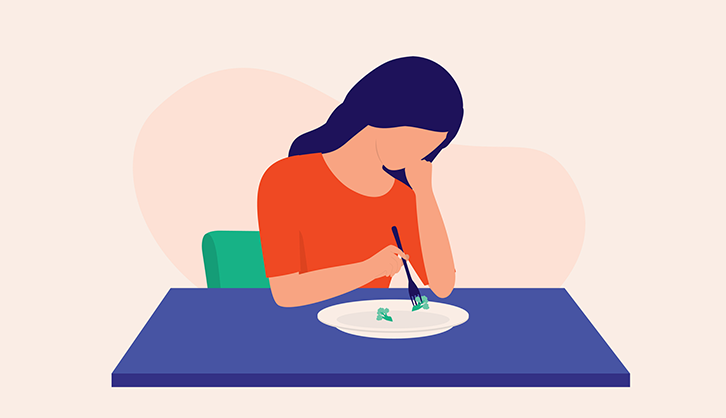Last Updated on April 3, 2025
BY AMY SWEEZEY
Diane Corso knows first-hand that eating disorders are not about food and they aren’t a lifestyle choice.
“If it was as easy as eating a burger, don’t you think I would?” Corso asked in a recent interview with Growing Bolder. “This is a mental disease. It’s not physical. You can’t tell an anorexic to ‘just eat’ and solve the problem.”
Corso developed anorexia nervosa when she was well into her 20s. She wasn’t a teenager worried about how she looked. She was an adult, finished with college, and working as a teacher.
“Many teenagers do develop eating disorders and they often have parents who notice and can get them help,” said Corso. “But adults have a lot of stressors that teenagers don’t, and they also are able to hide it easier.”
Corso said her anorexia started as an obsessive-compulsive disorder developed in childhood. From the time she was a little girl, Corso knew she was different from other kids.
“I remember at a very young age being routine and scheduled,” said Corso. “I literally laid out my clothes in kindergarten from head to toe and everything in order. I made my bed the same way every day. The stuffed animals were in the same position every day.”
Corso recognized her obsessive compulsion, although she didn’t have a name for it at the time. “I had to turn on and off the lights a few times. I had to make sure the iron was off, the curling iron was off, the garage door was shut, and I checked all of them until it exhausted me.”
Corso’s OCD eventually manifested into an obsession with exercise, often running more than 25 miles every day until her feet bled from blisters and her bones began to fracture. At the same time, she stopped eating and developed anorexia.
The disease progressed until Corso no longer felt hungry. “Because I had completely ignored my body’s requests for food for so long, it gave up trying to tell me to feed it.”
Corso struggled with her disease through several miscarriages and through a turbulent pregnancy leading to the birth of her triplets. Near the end of the pregnancy a feeding tube was forced up Corso’s nose and down her throat to ensure her babies would receive enough nutrition. She shared the intimate, horrifying experience openly in her book The Uncomfortable Truth.
“Unfortunately, we live in a hugely weight-obsessed culture. Thinness is praised. Fitness is praised. If we fall into that category, we can’t get out of it because culture approves of it,” said Corso. “For somebody who’s living through it, you don’t want to end up for 30+ years like this because it is so hard to stop. I have a lot going for me. I have a beautiful set of kids and a promising career, and I can’t snap out of it.”
Corso hopes her book will prompt the medical community to become more involved with patients and ask more questions. At the height of her disease and excessive running, she was in and out of doctors’ offices with injuries; yet the exams never went past a remedy for the fractures to discuss the cause of them. Her fertility doctors didn’t question her about what she ate or discuss disordered eating.
“I still see people today for routine things and blood work, and I have a low heart rate, and they don’t question why. Nowadays, I get even braver and say, ‘Well, I’ve had an eating disorder. I have an eating disorder,’ and they’re like, ‘Oh, okay,’” Corso shared. “They skirt around it like they’re embarrassed. They don’t know how to talk about it, so I think that that’s very important maybe to get out into the medical world and talk about it, help us.
“This is mental. This is not physical. It looks physical, and that’s the treatable part. It’s the mental that needs to stick. Thank God we have come across a day that we talk about mental illness a lot more freely now. The public accepts more of mental challenges and talks about it. I want people to tap into the fact that eating disorders are a mental illness and just really hone in on that because I think we’ll become more united that way. If my book is part of that, I’m good.”















